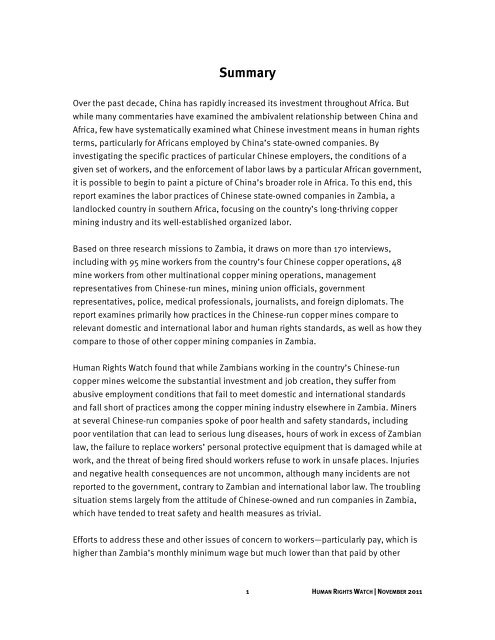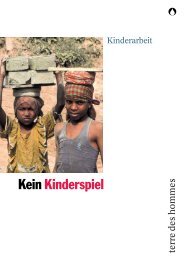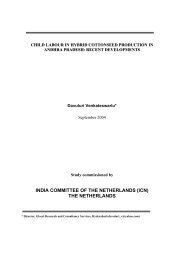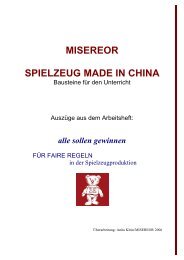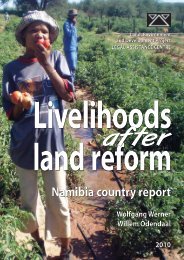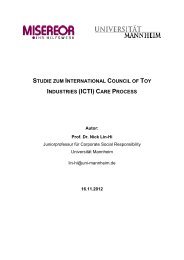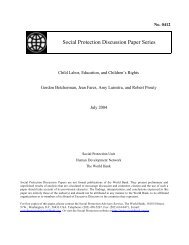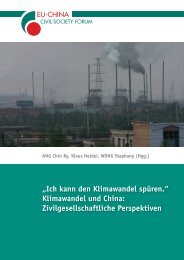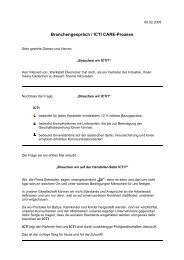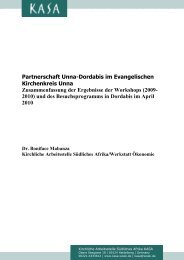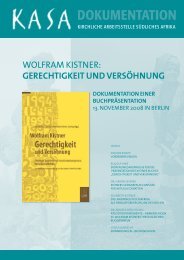“You'll Be Fired if You Refuse†- Human Rights Watch
“You'll Be Fired if You Refuse†- Human Rights Watch
“You'll Be Fired if You Refuse†- Human Rights Watch
You also want an ePaper? Increase the reach of your titles
YUMPU automatically turns print PDFs into web optimized ePapers that Google loves.
Summary<br />
Over the past decade, China has rapidly increased its investment throughout Africa. But<br />
while many commentaries have examined the ambivalent relationship between China and<br />
Africa, few have systematically examined what Chinese investment means in human rights<br />
terms, particularly for Africans employed by China’s state-owned companies. By<br />
investigating the spec<strong>if</strong>ic practices of particular Chinese employers, the conditions of a<br />
given set of workers, and the enforcement of labor laws by a particular African government,<br />
it is possible to begin to paint a picture of China’s broader role in Africa. To this end, this<br />
report examines the labor practices of Chinese state-owned companies in Zambia, a<br />
landlocked country in southern Africa, focusing on the country’s long-thriving copper<br />
mining industry and its well-established organized labor.<br />
Based on three research missions to Zambia, it draws on more than 170 interviews,<br />
including with 95 mine workers from the country’s four Chinese copper operations, 48<br />
mine workers from other multinational copper mining operations, management<br />
representatives from Chinese-run mines, mining union officials, government<br />
representatives, police, medical professionals, journalists, and foreign diplomats. The<br />
report examines primarily how practices in the Chinese-run copper mines compare to<br />
relevant domestic and international labor and human rights standards, as well as how they<br />
compare to those of other copper mining companies in Zambia.<br />
<strong>Human</strong> <strong>Rights</strong> <strong>Watch</strong> found that while Zambians working in the country’s Chinese-run<br />
copper mines welcome the substantial investment and job creation, they suffer from<br />
abusive employment conditions that fail to meet domestic and international standards<br />
and fall short of practices among the copper mining industry elsewhere in Zambia. Miners<br />
at several Chinese-run companies spoke of poor health and safety standards, including<br />
poor ventilation that can lead to serious lung diseases, hours of work in excess of Zambian<br />
law, the failure to replace workers’ personal protective equipment that is damaged while at<br />
work, and the threat of being fired should workers refuse to work in unsafe places. Injuries<br />
and negative health consequences are not uncommon, although many incidents are not<br />
reported to the government, contrary to Zambian and international labor law. The troubling<br />
situation stems largely from the attitude of Chinese-owned and run companies in Zambia,<br />
which have tended to treat safety and health measures as trivial.<br />
Efforts to address these and other issues of concern to workers—particularly pay, which is<br />
higher than Zambia’s monthly minimum wage but much lower than that paid by other<br />
1 HUMAN RIGHTS WATCH | NOVEMBER 2011


